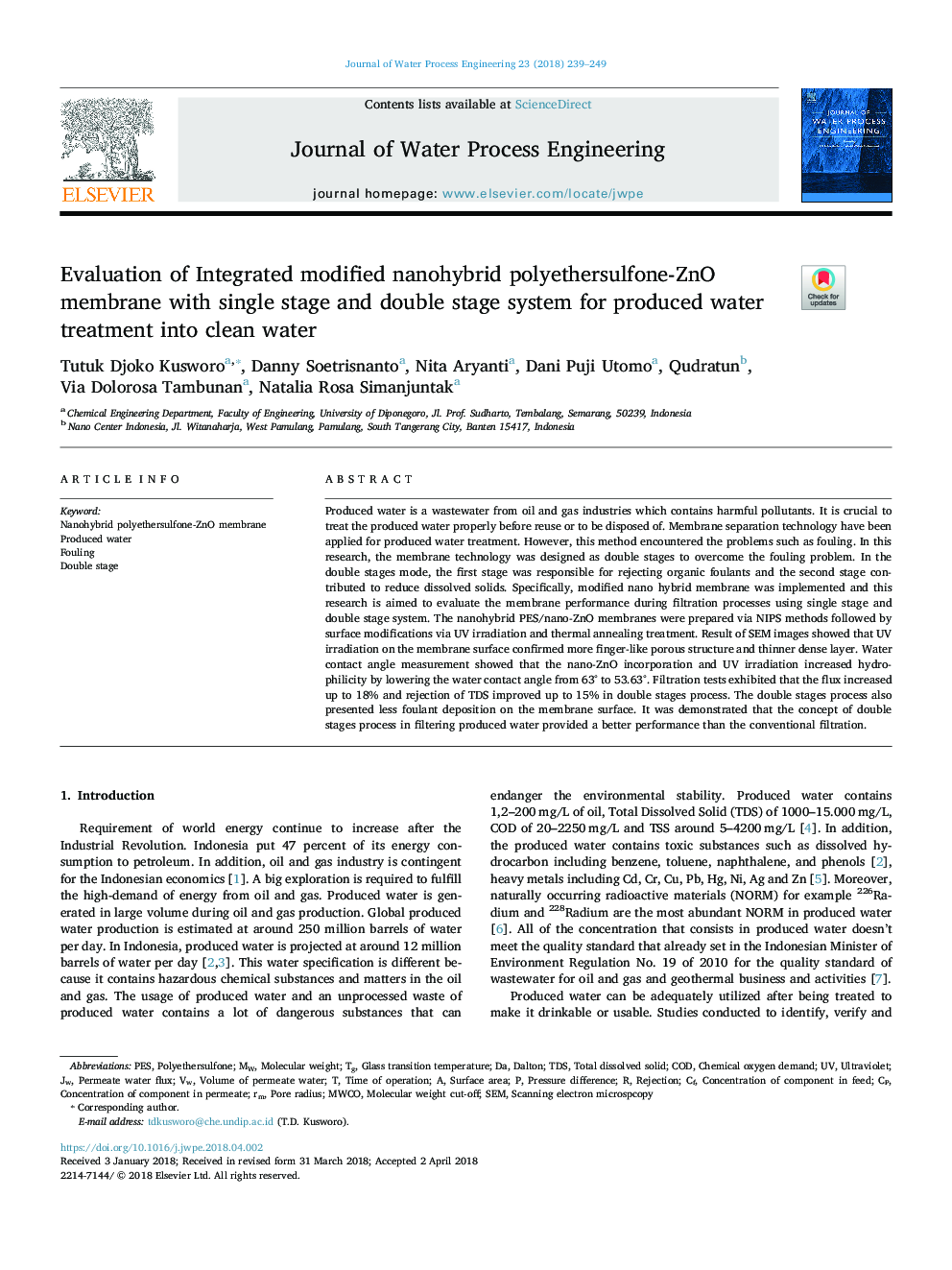| Article ID | Journal | Published Year | Pages | File Type |
|---|---|---|---|---|
| 6671912 | Journal of Water Process Engineering | 2018 | 11 Pages |
Abstract
Produced water is a wastewater from oil and gas industries which contains harmful pollutants. It is crucial to treat the produced water properly before reuse or to be disposed of. Membrane separation technology have been applied for produced water treatment. However, this method encountered the problems such as fouling. In this research, the membrane technology was designed as double stages to overcome the fouling problem. In the double stages mode, the first stage was responsible for rejecting organic foulants and the second stage contributed to reduce dissolved solids. Specifically, modified nano hybrid membrane was implemented and this research is aimed to evaluate the membrane performance during filtration processes using single stage and double stage system. The nanohybrid PES/nano-ZnO membranes were prepared via NIPS methods followed by surface modifications via UV irradiation and thermal annealing treatment. Result of SEM images showed that UV irradiation on the membrane surface confirmed more finger-like porous structure and thinner dense layer. Water contact angle measurement showed that the nano-ZnO incorporation and UV irradiation increased hydrophilicity by lowering the water contact angle from 63° to 53.63°. Filtration tests exhibited that the flux increased up to 18% and rejection of TDS improved up to 15% in double stages process. The double stages process also presented less foulant deposition on the membrane surface. It was demonstrated that the concept of double stages process in filtering produced water provided a better performance than the conventional filtration.
Keywords
Related Topics
Physical Sciences and Engineering
Chemical Engineering
Chemical Engineering (General)
Authors
Tutuk Djoko Kusworo, Danny Soetrisnanto, Nita Aryanti, Dani Puji Utomo, Qudratun Qudratun, Via Dolorosa Tambunan, Natalia Rosa Simanjuntak,
